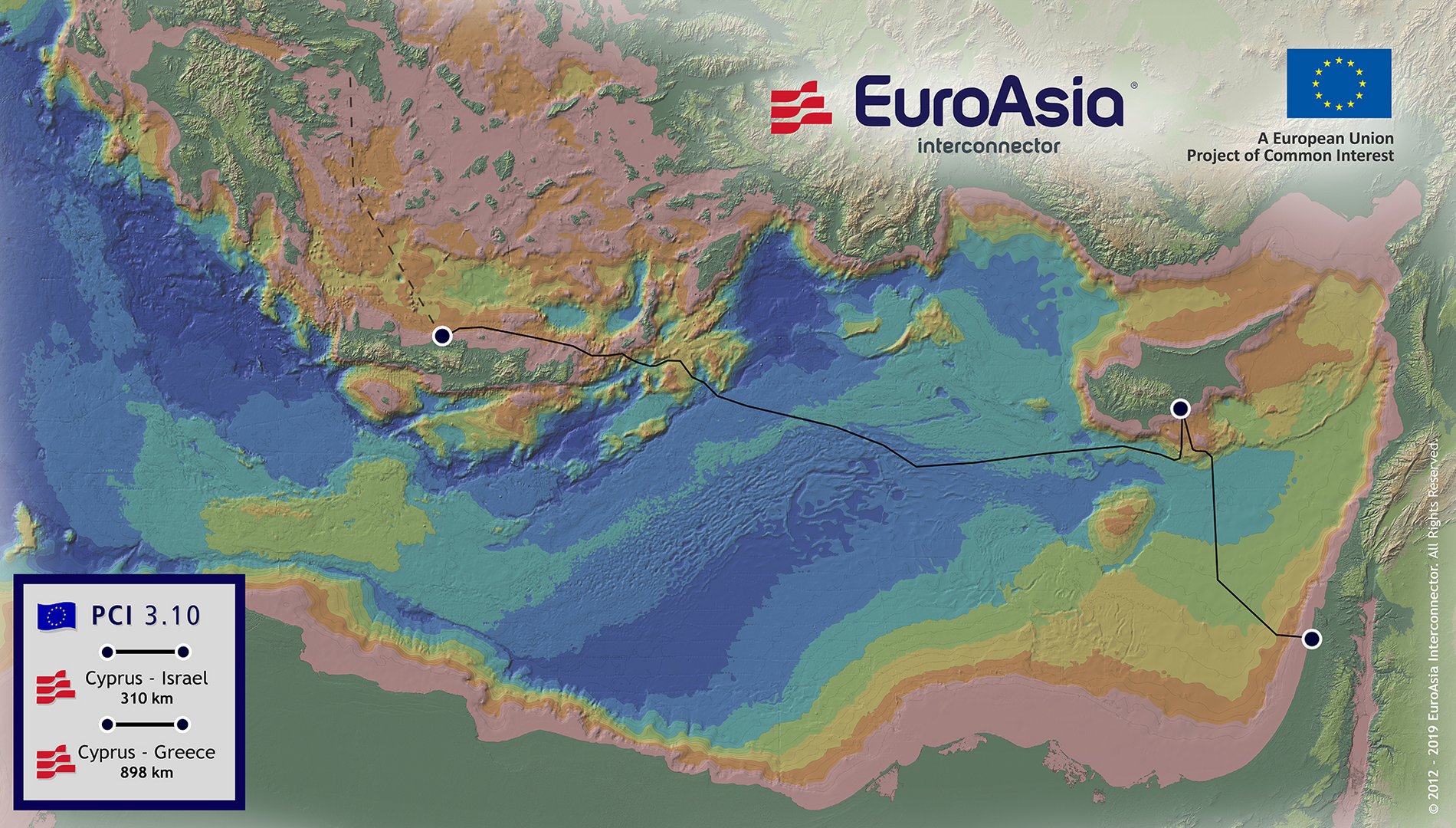Officials of the European Investment Bank (EIB) will be in Cyprus next month for talks with the government concerning the EuroAsia Interconnector project, the finance minister told MPs on Tuesday.
The upcoming EIB visit follows reports that the project – a subsea electricity cable connecting Cyprus to Crete – has run into financing problems.
The issue was discussed extensively on Tuesday at the House energy committee, attended by Finance Minister Makis Keravnos, Energy Minister George Papanastasiou and the CEO of EuroAsia Nasos Ktorides.
EuroAsia is the project promoter. It is private limited company registered in Cyprus.
Keravnos confirmed that sometime in September an EIB delegation will visit, and that the talks would include the cable project – which the government has hinted it might either underwrite loans for or directly participate in as an equity shareholder.
The finance minister said he will be briefed by the EIB so the government can then form an opinion.
Noting that the project “is of interest” as it would establish an energy corridor between Cyprus and the European mainland, Keravnos qualified that the government cannot commit to becoming involved in such a massive undertaking unless and until it knows how that might impact state finances.
EuroAsia has applied to the EIB for a €580 million loan. But recently it emerged that an external consultant hired by the EIB while not definitively giving the loan request the thumbs-down, voiced reservations about funding the project.
Meanwhile the Cyprus Mail has learned that EIB people will also meet EuroAsia representatives in September to discuss the external consultant’s findings.
The European Commission has designated EuroAsia as a Project of Common Interest, allocating to it €657 million via the Connecting Europe Facility. Another €100 million has been pledged via the Recovery and Resilience Facility.
Given the new price tag of €1.9 billion for the Cyprus-to-Crete stretch of the cable, the financing shortfall currently stands at just under €1.2 billion. A €580 million loan from the EIB would plug part of that gap.
The project promoter has also said it is additionally looking to secure a syndicated loan from other institutional investors – meaning banks.
For his part, the energy minister stressed the importance of the project for Cyprus. He said the ministry is currently in the process of commissioning a foreign firm to assess the project on two counts – its financial viability and its geostrategic value.
Only if the answers to those two questions are positive, would the Cypriot state become involved.
Papanastasiou reiterated that his own preference would be for the state to ‘buy into’ the project, rather than the state underwriting loans for it.
And citing calculations, he said the cost to the Cypriot taxpayer from construction and operation of the cable would work out to a mere 0.7 cents per kilowatt-hour.
“Today in Cyprus we pay around 34 to 35 cents a kilowatt-hour. So the cost would go to 34.7 cents per kilowatt-hour… not a significant surcharge.”
Ktorides said the project has secured all the necessary permits. He said construction could begin in 2029.
Meantime news reports in Greece said that an ‘Israeli fund’ – possibly a venture capital fund – is in talks to acquire a direct stake in the project. The Israeli concern is reportedly interested in acquiring a 33 per cent equity share in EuroAsia. Greek media claimed to have gotten hold of a leaked ‘non-paper’ to this effect.
Also, in June of this year, Greece’s Independent Power Transmission Operator (Admie) had signed a Letter of Intent with EuroAsia for buying 25 per cent equity in the project, with an option for later expanding their share to 33 per cent.
Industry sources told the Cyprus Mail a 25 per cent equity share would roughly amount to €200 million.
All this would happen through an increase in the shareholding capital of EuroAsia – the issuing of new shares.
EuroAsia is not a listed company in Cyprus, and therefore not legally required to notify of any increase in shareholding. But Admie is listed on the Athens stock exchange and would need to make a filing should it buy into the project.
As to the Israeli fund, the same sources confirmed there is indeed interest and that talks are well underway.
Earlier, the sources had told the Cyprus Mail of a Norwegian state fund that was likewise looking to participate – but probably via a loan rather than acquiring an equity stake.
Still, the financing shortfall remains, and is a separate issue.







Click here to change your cookie preferences